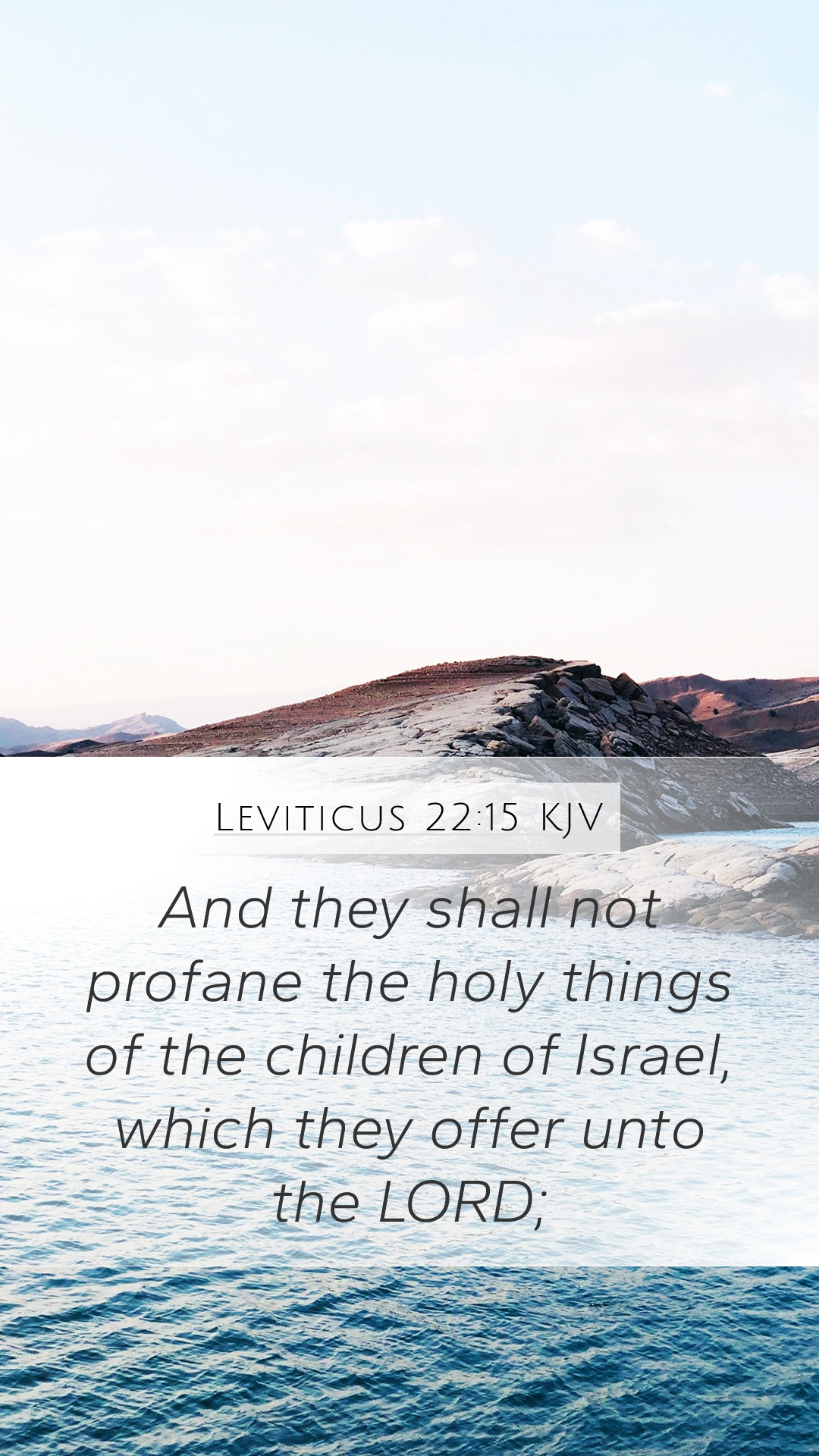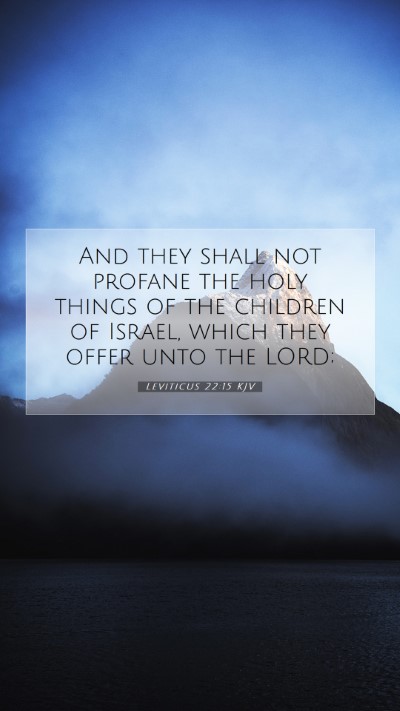Understanding Leviticus 22:15 - Bible Verse Commentary
Leviticus 22:15 reads: "And they shall not profane the holy things of the children of Israel, which they offer unto the Lord; lest they bear the iniquity of their trespass, when they eat their holy things: for I the Lord do sanctify them."
This verse addresses two crucial aspects of worship and holiness within the context of the Old Testament Law. Through insights from public domain commentaries, we can gain a deeper understanding of Scripture and the significance of this passage.
Commentary Insights from Matthew Henry
Matthew Henry emphasizes that the sanctity of offerings made to God must be preserved. He notes that the priests and the worshippers are warned not to treat the holy things with irreverence. When these items are handled or consumed without proper respect, it implicates the individuals in a significant spiritual error. Henry reminds readers that these offerings represent a connection between the people and God, and their misuse could lead to divine judgment.
Insights from Albert Barnes
Albert Barnes highlights the concept of holiness as a prevailing theme in the Levitical laws. He explains that the term 'profane' implies treating something sacred as common or ordinary. Barnes stresses that proper conduct regarding holy offerings is crucial for maintaining a covenant relationship with God. Neglecting sanctity in offerings not only disrupts the worship process but also bears consequences for both the individual and the community.
Perspective from Adam Clarke
Adam Clarke dives into the psychological implications of this directive. He points out that when individuals are careless about offering practices, it reflects a deeper spiritual malaise that can affect the community's conscience. Clarke indicates that the instructions provided in this verse serve as a protective measure, guarding both the worshipper and the practices against degradation.
Theological Significance
Collectively, these comments bring attention to the importance of reverence in worship. The phrase "which they offer unto the Lord" underlines that offerings are not just mere rituals; they embody faith, devotion, and the acknowledgment of God’s holiness.
Application in Daily Life
The implications of Leviticus 22:15 extend beyond the historical and cultural setting of ancient Israel. Today, believers are reminded to approach their spiritual practices—whether prayer, worship, or service—with respect and seriousness.
Key Applications Include:
- Recognizing the significance of worship and rituals in one’s faith journey.
- Ensuring that everyday acts of devotion reflect an attitude of reverence.
- Being aware of community impact: personal spiritual integrity can influence others.
Cross References
Several other Bible passages echo the themes in Leviticus 22:15:
- Exodus 28:43 - Discusses the holiness of the priest's garments.
- Leviticus 10:1-2 - Narrates the severe consequences of profaning holy things.
- Numbers 18:32 - Highlights the significance of offerings in maintaining holiness.
Conclusion
Leviticus 22:15 serves as a vital reminder of the necessity for holiness and respect in our worship practices. Through Bible study insights drawn from various commentaries, we understand that our approach to God is pivotal in establishing a relationship that honors His sanctity.


